What is Self Storage and when might you need it?
Anyone can use self storage – business owners (from large corporations to start-ups), families, students and house movers, to name but a few, and most people end up needing self-storage at least once in their lifetime. That means a lot of first-time customers who may not be sure about how self storage works. If you’re looking at renting storage space for the first time or just aren’t sure what self-storage is then don’t worry as the below will help get you started.
What is self storage?
Self storage is a service that enables people, whether it’s individuals or businesses, to rent storage space remotely. This is usually because they don’t have enough space on their own premises or because what they want to store doesn’t need to be kept in the home or office and is therefore potentially wasting the space it is using.
Why do people need self storage?
Self storage is born out of the necessity for more space, but there are many reasons why people may need more space in their life. For individuals looking at personal storage one of the most popular reasons is moving house where it is often necessary to store some or all furniture and personal items between properties.
Personal storage is also great for keeping your items safe and making space for renovation at home, decluttering and claiming back previously unused space in the home or simply because your property is too small for some of your more sentimental but rarely used belongings. Students especially may require storage for keeping their personal effects during the summer between student housing or while they travel.

For businesses, storage space can be used as additional stock space and mini-warehousing, a central hub for storing stock and running an online business, archiving old documents that are still needed for legal reasons, storing bulky exhibition equipment that is only needed once or twice a year and even as affordable office space to run the businesses itself.
Self storage facilities are all different and may specialise in particular areas or industries or offer different amenities and additional services, but all storage facilities should offer some basic necessities.
Security – CCTV and alarm security systems should all be in place to ensure your goods always stay safe and secure. Here at Self Store & More, we also have security patrols during the night time for additional peace of mind https://wyesecuritysolutions.co.uk/

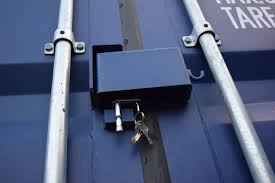

Clean and dry space – storage units should always be clean and dry to protect your goods against damp and other damage.
Accessible – whether there are clearly outlined working hours with a member of staff available or secure pin-code access for 24/7 access, you should know when you can get to your goods and should always have access during these times.
How can you rent self storage?
Renting your own storage space is relatively straightforward but it can be hard to know where to start or be confused by some of the processes if you’ve never done it before. Here’s a step by step guide on how self storage works and what to do.
Choose your location and narrow down your search
Deciding your location will have a huge influence on which facility you eventually end up with but it doesn’t have to be the sole determining factor. Different areas in the UK will cost differently, for example self storage in London costs significantly more than in rural areas such as Lydney, Cinderford, Ross on Wye and Whitchurch near Monmouth where our sites are located. Whilst you may need to be near your belongings for day to day access, if you can look elsewhere and perhaps travel outside of the big towns and cities then you may benefit by getting more affordable space.
Decide on your type of storage
The type of storage solution you need will also help determine which storage facility you choose as not all of them will offer what you need. If you’re moving to a new house or just need storage for yourself or your family then you’ll just need personal storage, but if you’re a business then you’ll want a facility that can better meet your needs. Some may specialise more in archiving or bespoke offices, or you may want a storage company that can do it all. All of this may determine whether you need single box storage, standard storage space, container storage or even bespoke office space.
Choose your unit size
You’ll then need to decide on the size of unit to suit your needs, which is the main factor for determining how much your storage solution will cost. At Self Store & More we are always happy to discuss your needs in detail and use our years of experience to guide you to the right unit size before any decision is made. There are however a few things to be aware of when choosing the size, such as whether you need to access any of the items you are storing. If you do, then you may want a larger space to create walkways and room to get around your unit rather than tightly packing everything in and making it difficult to reach items at the back of the unit when needed.
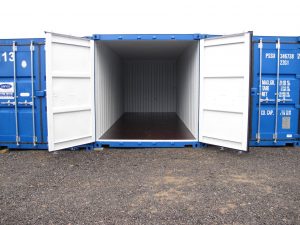
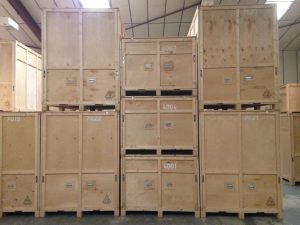
Reserve your unit
Once you’ve confirmed which storage facility you’re using and have decided on the unit you want to secure you can either reserve your unit or move your belongings in straight away.
Move in
You can move in at a time that suits you depending on the hours of the facility you choose. Ask for advice on the best way to pack your belongings and organise your storage unit in order to make the most of the space you have. From there you can access your unit anytime you want according to your facility times, which is 24/7 for the majority of our storage solutions.
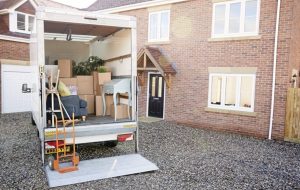
Move out – No Notice Period Required with Self Store & More
When you’re ready to vacate your unit, you don’t need to give us any advance notice to do so as we like to offer the best flexibility to suit your needs. Simply let us know once you’ve moved out and we’ll do the rest – nice and simple.
Ready to reserve your own storage space today? Give us a call, fill in our easy quote request form or come in and see us.
Tips for Moving House
Moving to a new house is probably one of the most stressful things you can do in life and, whilst the thought of settling into your new home is exciting, the actual packing and planning beforehand aren’t. However, moving home doesn’t have to be a complete chore if some simple tips are followed.

Seek a helping hand
Decluttering can be carried out for a number of reasons such as getting the house ready to impress a buyer or simply packing away your non-essential belongings to reduce the workload on moving day. Or do you have a gap between your move-out and move-in date and need a place to store all your things for a few days or weeks? These items will, of course, require a new, temporary storage space and if friends or family can’t help with a spare room or garage then using a local self storage company may be the solution you need.
Protect your possessions

Plan in advance and purchase plenty of strong boxes, bubble wrap, tape and blankets prior to packing….these are your belongings after all. Make sure you individually wrap fragile items such as glassware, photos, pictures, plates etc before packing them in a larger box. If you are thinking of placing your belongings into long term storage then make sure everything is clean and dry so they don’t become mouldy during the months (or years) in storage.
Pack smart, Pack safe
When it comes to packing your items, make sure you think logically about how you’re going to go about it. Always pack heavier items in smaller boxes as it’s easier to carry. Always think about how many books you stack in one box as these quickly add up to a lot of weight and may lead to a bad back or broken box when trying to lift it. Use larger boxes or bags for essentials such as duvets and pillows as these are light and easier to stack and store when contained in a box or bag. It may seem obvious to many but always label each box or bag as you will forget over the weeks or months when you suddenly need some items and can’t remember where it is…leading to wasted time and effort trying to find the right box.
Where are you going?
It’s easy to get caught up in the excitement of changing postcodes but don’t forget to tell your bank, insurance company, building society, credit card providers and favourite charities before you go. After all, you don’t want any important documents getting sent to the wrong address.
And, just in case the bank doesn’t change your address, don’t forget to redirect your post with Royal Mail as a fail safe.
‘Go to’ essentials
Prepare a bag of essentials which should be the last thing you load into the car. This could include a change of clothes, toothbrushes, snacks, kettle, tea & coffee, mugs and sugar. Perhaps a first aid kit, tool box and toys to keep younger ones entertained when unpacking.
Treat yourself

A big move is hard work and stressful so stick to your deadlines but also allow yourself some down time to enjoy a well-earned rest. Enjoy a cup of tea and biscuit during the day and why not order in from your new local takeaway in the evening. After all, there will plenty of time to cook in your new home. If you’re not sure of what takeaways are around then a quick Facebook post in the local group will always bring suggestions and recommendations for you to try.
Benefits of Short Term Self Storage
Short term self-storage is a great option if you’re looking for a way of decluttering your home or workspace for a few days or weeks. Unlike a lot of storage companies, we don’t ask for a minimum rental period or notice period to vacate so, the day you vacate the unit is the day your rent stops – simple. This means you don’t have to second guess when to give the 7 day notice period a lot of storage providers ask for and you won’t be left paying for a unit when it’s no longer needed.
Here are some reasons when and why you might need to use short term storage.
Selling your home
In today’s housing market, it’s not always possible to sell your home and move straight into your new one. Rather than risk losing a buyer while you sort out your purchase, you can use short term self-storage to keep all of your belongings safe and in one place (rather than in friends’ garages) while you rent or stay with family for a few weeks until you’ve found and completed your new house purchase.
Moving into a new home

Unless you’re moving into a new-build, consider taking just the basics in with you on moving day, and have the rest delivered directly to your short term storage unit. Cleaning, decorating and fitting new carpets will be much easier without having to move all of your furniture from room to room!
During renovations at work or home

These are stressful enough. You do not need the added issue of making sure that none of your stuff gets splashed with paint, covered with dust or otherwise wrecked by builders, plasterers, decorators or errant spouses who are “trying to help”.
Storing garden furniture and tools
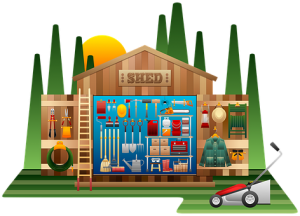
If left outside over winter, your garden furniture may well need a lot of TLC before you can use it again in the spring. You might also be worried about leaving your tools in a shed during the dark winter months. Tools and furniture can all be kept clean, dry and safe in a storage unit over winter, ready to be used again in the spring.
Renting out a room or house
When Government guidelines allow us again, AirBnB and similar sites are a popular way for homeowners to make a bit of extra income by renting out a room or the entire house. Most guests don’t like it if there’s a lot of personal belongings around the home, so empty your wardrobes and decant your clothes and other items into your storage unit for the short term until your house is your own again.
Storing student belongings

Sadly, burglars know that student digs are often empty for long periods over Christmas, Easter and summer holidays, and thefts from those properties tend to skyrocket over those periods. You can rent a self-storage unit for a week or longer over the holidays and keep your valuables safe, rather than leaving it vulnerable. Even if you bring it all ‘home’ with you, will there be sufficient room to store it over the holiday period? Using a local self storage provider near to your family home will mean you or someone else are not tripping over books, bags or bikes with the likelihood of damage occurring…. and if you need something from storage, it’s easy to visit and collect what you need.
Clearing the spare room
If you normally use your spare room as a bit of a dumping ground, home gym or office, you might need to clear it out to use it as a bedroom now and then – over Christmas, say, or if you have children at university who want to come home in the holidays.
Start-up business storage

Is your business reaching the point where you need to store stock or equipment rather than keep trying to find space for it around the house? Try short term storage and see if flexible self-storage might be the best use of your resources in the longer term, or just as a stopgap until you can sort a more permanent solution as your business grows.
Life changes
Divorce, downsizing, bereavement and moving in with a partner are all times when you might find that you have more belongings than you have room for. They’re also times when long term decisions are not a wise idea, because you’re still finding your feet after a major life event (good or bad). Short term storage is a good solution for keeping all of your belongings safe without risking throwing away things you’ll use again.

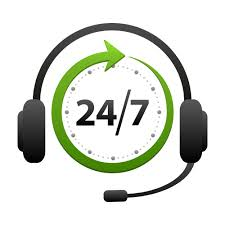
If we at Self Store & More can be of any help with finding the right storage solution to suit your short term needs then please don’t hesitate to contact us on the telephone (01600 735001 or 01594 840860), by email [email protected] or by using our website contact form.
Things to consider when renting a self storage unit.
As space is becoming a problem for many households and businesses, self storage has become the first choice for many. While there are several reasons why people use self storage, the most common include moving home or office, renovating, storing collectables, archiving and stock storage. It is even used by students and those who travel extensively as a safe haven for their belongings.
Before you rent a storage unit however, here are a few hints and tips to make sure you are getting the best value for money and making effective use of the space.
Research.
The first step to ensuring a smooth and successful storage experience is to plan everything as thoroughly as possible. Make sure you research and discuss your requirements with all local self storage companies and ask questions such as…
- Where are they located? (consider the overall travel time and fuel cost if you need to visit the unit for 1 or 2 items on a Sunday afternoon)
- What unit sizes are on offer?
- Are they suitable for storing your items (i.e. insulated, wind & water tight, vermin proof etc)
- What are the access hours?
- What security measures do they have in place?
- What is the minimum rental term?
- What notice period do you need to give to vacate?
- What contents insurance cover is in place?
Decide what size storage unit you need.
Discuss with the storage company what items you need to store and ask for advice regarding the correct unit size. It can be surprising what fits into a small space so why pay for a unit that is too large.
We offer a range of sizes starting from our smallest 7’ x 5’ x 4’ warehouse unit (ideal for boxes, books, files etc) through to a 20’ x 8’ x 8’ steel storage unit that can store the contents of an average 3-4 bedroom house. We also have heated storerooms if a temperature-controlled space is required. The larger the unit the more rent you pay so we always advise and encourage you to discuss your requirements first so we can offer you the most suitable and cost-effective solution to suit your needs.

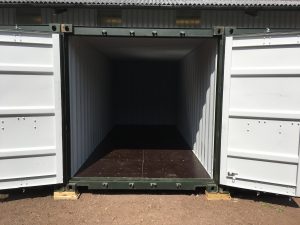

Preparation and Packing.
- One of the hardest things to do when moving items into storage is to purge your items and get rid of anything you don’t need or like. We all keep items for the ‘just in case’ situation but why pay to store items you are never likely going to use or need again.
- Once you’ve decided what is to be stored, make an inventory and label all boxes as you pack – You never know if you will need one or two items after a few months of being in storage and who is likely to remember what was stored in which box!
- Pack as much of your smaller items as you can into boxes – strong, standard-sized moving boxes. This way, your belongings will be better protected, and you will be able to pack the unit more easily and efficiently as it is easy to stack similar sized boxes in the unit, creating a compact and tight load.
Using old boxes from supermarkets and retail stores is not a good idea even though it will save you money on packing supplies – these boxes won’t provide good protection to your items (as they will be weakened from previous uses) and won’t stack securely on top of one another (as they will be different sizes and shapes), making it more difficult to load the unit and increasing the risk of damage to your belongings.
- Make sure the items you intend to pack in the unit are clean and dry. Although all of our units are clean, dry and ideal for storing most items, any moisture and dirt that is already on your belongings can have a detrimental effect over time. It is therefore crucial that every item is clean and completely dry before being packed in the unit.
- Reinforce the bottoms of the boxes with packing tape, fill the cartons to their capacity (so they don’t cave in when stacked on top of one another), fill any empty spaces in the boxes with cushioning materials to prevent the items inside them from shifting and coming in contact with one another during transit, and seal the cartons well.

- Don’t forget – Label the boxes with their contents and wrap fragile items in packing paper and bubble wrap and make sure they’re well cushioned in the moving boxes. Mark the boxes that contain breakables and delicate items as “FRAGILE” and “HANDLE WITH CARE”
- Pack heavy items in small boxes and lightweight items in large boxes. Be careful not to overload the boxes and not to make them too heavy to lift
- If possible, disassemble larger furniture pieces (tables, desks, beds etc) to make them easier to store and less vulnerable to damage.
- Wrap furniture, appliances, and other larger items in moving blankets to protect them against dust, dirt, moisture, and damage.
- Use mattress covers to protect your mattresses if needed.
- Protect TV screens with foam sheets or large pieces of cardboard, wrap the entire TVs in several layers of bubble wrap, and pack them in their original boxes or specialized TV boxes if you have them.
- Protect pictures and mirrors with cardboard pieces, wrap them in bubble wrap, and pack them in picture boxes.

Once your ready to move your belongings into storage, it’s also important to think of the process so you maximise the space used and make sure you have what you need first stored at the front of the unit.

- Start at the back of the container and pack your items in vertical layers that reach up to the roof. The goal is to create a series of tiers (floor to ceiling walls), so you can maximize the available space.
- Start the first tier by placing some large, sturdy pieces of furniture (safely wrapped and padded) flush against the back wall of the container. Put boxes and items of medium weight on top and finish the layer with lighter things.
- Use some large and heavy boxes as the base for the next tier and stack lighter items on top. Keep alternating between solid furniture, heavy boxes, and other sturdy items as bases for the tiers. Stack lighter things on top of the bases and make sure the tiers reach to the top of the unit.
- Work on one tier at a time, so you don’t need to climb over your belongings as you pack.
- Make the tiers as tight as possible to maximize the space and prevent items from shifting over time – use small, pliable items (pillows, plush toys, bags of clothing, etc.) to fill any gaps between the items in a tier, put some heavy boxes in the cavities underneath desks, chairs, and other similar pieces.
- Mix boxes, furniture, and other items in a tier – it will be easy to build an entire tier by stacking boxes from floor to ceiling, but it will be impossible to make a neat, secure tier with irregularly-shaped items only. Therefore, you’re advised to use both boxes and oddly-shaped items in each layer, so each tier can be finished off correctly.
- Put items you won’t need first in the back of the unit and items you will need easy access to at the front. It is a good idea to load non-essential furniture, things from storage areas, specialized items, boxes filled with out-of-season items, and other rarely used items first and pack bathroom items, kitchen items, some clothing and bedding, and other essentials at the front so you can get to them quickly and easily if needed.
- If there remains some room between the tops of the tiers and the ceiling, you can use it to pack some thin, oddly-shaped items that fit the space (like golf clubs and fishing rods, bed frames or headboards and folding chairs, etc).
Once you have packed the unit correctly, simply lock it back up and you’re now ready to access what you need, when you need without too much fuss.
If you require any advice regarding storage then don’t hesitate to email or call us 7 days a week – we’re always happy to help.
Are you moving, renovating or running out of space at home? Here are some tips on how to declutter and how Self Store & More can help.
Preparing your home for sale or moving into a new house is the perfect excuse to purge excess items you no longer need. However, if you already live in a great location but the house is just too small, overrun with toys, tools, boxes or broken bits, or you simply need to create more space during this current lockdown, then having a declutter and rearrangement of space could be the answer you are looking for.
Whatever the reason, it can sometimes be tricky to determine what to keep and what to throw away. Storing is, of course, another option, especially for those items you don’t use often enough but don’t want to dispose of for sentimental or value reasons.
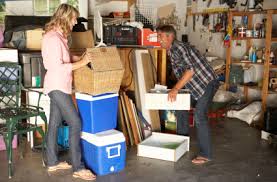
Here is some advice to help you evaluate if you should pack, throw or store your belongings.
How to Categorise Your Items.
When sorting through your belongings, ask yourself a series of questions to help categorise items:
· How often do I use it?
· How emotionally attached am I to it?
· Is this ready for an upgrade?
· Could someone else get more use out of it?
· Does it still function correctly?
· Will this fit the décor of my new home or extension?
· Is there room for this in my new house if I move?
Pack up or keep all the items that pass these questions. The rest will fall into one of the categories in the following sections.
What to Throw Away (and other options)
Remember to be honest with yourself when sorting through items. This will help eliminate unnecessary clutter taking up valuable space in the future. Besides broken items, some items to consider kicking to the curb are:
· Items with missing parts.
· Old greeting cards, letters, magazines.
· Rusty equipment, such as gardening tools, old bikes or toys that are no longer played with.

Although getting rid of excess items can be a relief, sometimes it may be difficult to just throw your items away. If so, why not consider other options that can give your useful belongings a second life, such as donating, selling or giving them away.
· Clothes that are no longer worn.
· Extra or unused kitchenware (plates, glasses, mugs, silverware).
· Lightly worn furniture.
· Lightly worn rugs.
· Décor that is no longer used, such as lamps, paintings or sculptures.
So How Can Self Store & More Help?
Some of the items you want to keep may not be of use to you anymore, but have sentimental memories, or be future hand-me-downs for when the children go to university or move into their first house.
At Self Store & More, we offer a wide range of cost effective solutions to suit your needs so, whether it’s one box or a whole house, we will listen, discuss and advise what’s best for you.
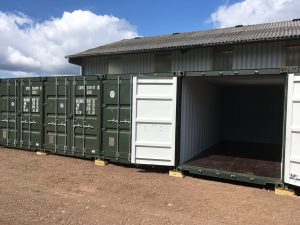
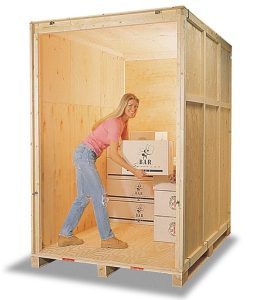
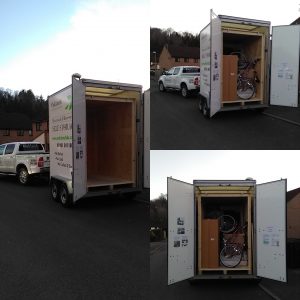

Some items to consider storing, include:
· Unused musical instruments.
· Holiday decorations.
· Family photographs or keepsakes.
· Patio Furniture.
· Kitchen appliances.
· Seasonal clothing.
· Outdoor tools (e.g. lawn mower, rakes, shovels, DIY tools).
If you wish to discuss your storage requirements, or simply need some free advice then please call us on 01600 735001 seven days a week or email via our contact us page.
Why Use Self Storage?
As space is becoming a problem for many households and businesses, self storage has become the first choice for many. At some point, many of us will need a self storage unit whether it’s for home or business. The fact that it’s safe, convenient, reliable and affordable makes it even more attractive.
While there are several reasons why people use self storage, the most common include moving home or office, renovating, storing collectables, archiving and stock storage. It is even used by students and those who travel extensively as a safe haven for their belongings.
Most Common Reasons People Use Self Storage?
Not everyone has the luxury of having enough space at home to keep all of our belongings safe. This is particularly the case if it involves larger items that fill up open space very quickly. From small to medium businesses, households, students and travellers, here are some of the most common reasons why people use self storage and why you should consider it too.
Home Clear Out

We are connected to our stuff whether we like to admit it or not. People, in general, are reluctant to get rid of things even if they no longer use it and that’s where a home clear out is so important. Along with self storage, you can even keep things “just in case” like furniture or toys to help the kids when they eventually enter the expensive housing market.
Moving House
People often have to find a temporary residence when moving to a new house which means space could be an issue. If there’s nowhere to safely store your furniture, clothes, sporting equipment and garden tools while waiting for the new property to become available, self storage is the answer. It can help keep you organised by storing things temporarily and simply collecting it when everything is ready. It certainly beats the alternative of selling old stuff and buying everything new.
Home Renovations

With the rise in housing costs, many people are renovating instead of moving as it is more affordable. While it may be cheaper, renovations and extensions can be time-consuming but you can always rely on self storage to keep things safe while builders are in-and-out. It’s the ideal solution to store your valuables, keep the house clear of clutter and worker safety.
Downsizing Home Or Moving To A Smaller Office

Self storage is also widely used when moving into a smaller home or office space. If there are things you cannot take with to the new premises, keep them in self storage until a later date. You never know what will happen as you may want to relocate where the extra furniture or equipment could come in handy.
Baby On The Way
A baby can change all the dynamics of your current living situation as it often requires completely clearing out a room or making the home safer. This means packing away all the old stuff to make space for the cot and other baby essentials. If you have a spare bed that is ‘baby-ready’, simply put in storage along with the desk, chest of drawers and cabinets. When the little one turns 3 or so, you can collect and refurbish the room accordingly.
Students Going Home For The Holidays
Students will inevitably collect excess items when they are at university. Things like television, computer, sofa and bed to mention a few. If it’s not their final year and summer holidays are around the corner, they will not bring everything home just to take it all back the next term. If that is the case, consider renting a storage unit close to your university accommodation. It is a very small price to pay for absolute convenience and peace of mind over the summer holidays.
Taking A Gap Year

Today, many students take a gap year and travel before they enter the world of adulthood and work. Self storage is perfect for this as there may not be enough room at mum and dad’s place for all the extra stuff. This means they have nowhere to store their belongings from the time they leave university until they get back and move into their own place.
Working Abroad
For those who have been offered the opportunity to work abroad on an extended contract, look no further than a self storage unit. If you have a property, you will likely rent it out for additional passive income until you return and would prefer to keep your valuables safe.
Empty Nesters
There comes a time when all the kids have left, either for university or moving into their own place. Things change after every move as the eldest who leaves at 18 didn’t take his bed and desk which the youngest of 12 could use one day. To save space until then, or if you want to turn the newly emptied room into a study or crafts room, put everything in storage. Long-term storage contracts are typically cheaper than short-term agreements so you’ll save even more.
Garden Furniture, Tools & Equipment

Seasons dictate the type of garden furniture, equipment and tools we use and knowing what to do with everything will help. Summer furniture, toys and tools can go into the shed or garage but space could be limited thanks to the new table or lounger you bought. Considering that you are not going to use any of these items for a few months, why not put it all into self storage?
A Change In Relationship Status
A breakup or divorce is never a nice experience especially when partners were living together. One, or both, has to move out which means making arrangements to store their belongings until life gets back to normal.
Family Bereavement
Nobody likes talking about it but the sad fact is that many people will inherit a home with all its contents following a family bereavement. While some may be lucky enough to hold onto everything, others need to distribute the inheritance or pay the associated costs which means the house must be sold. Secure storage may not be a top priority at this point but it can really help when dealing with the aftermath of losing a relative or partner.
What About Business Storage?
We’ve already mentioned that businesses use self storage when they downsize but what are the other reasons? Safe and accessible business storage is essential and we are not talking about keeping files in lofts or garages either. Documents, stock, equipment and even vehicles need a safe place without taking up all the room at the office.
Fact is, a business storage unit can benefit all types of companies as it helps to minimise overheads. After all, a self storage unit with all the necessary room is much more affordable than renting additional warehouse space.
How Do Companies Use Business Storage?
Storage units can help ease some of the stresses that accompany a growing business. Truth is, retail business owners, artisans, e-commerce brands and other entrepreneurs can greatly benefit. Here’s a quick look at the types of businesses that use self storage.
- Publishers and Book Dealers
- Construction, Landscaping, Roofing and Painting Companies
- Electricians and Plumbers
- Retail and E-commerce Businesses
- Restaurants and Catering Companies
- Sales and Servicing Businesses
If you need any advice on how self storage can help you at home or work then please do not hesitate to contact us by phone, email, website enquiry form or Facebook Messenger.
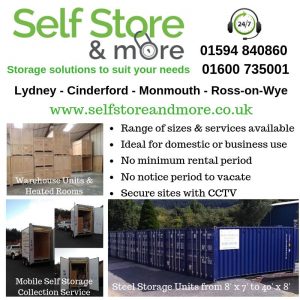
We’re available 7 days a week.
Self Store & More – A General Packing Guide for Self-Storage
Self-storage doesn’t have to be a space you visit a couple of times a year to dig something out of a stack of boxes. It can be a highly organised, easily accessible facility that frees up necessary space in your home or office. To get the most out of your unit, it’s best to plan in advance of the day you need self-storage.
This step-by-step plan should help you along the way:
WHAT WILL YOU STORE?
1. Make an inventory so you know exactly what it in the unit, especially if it is going to be a while before you visit again.
2. Start by identifying items that will be packed in boxes and stacked.
3. Prioritise boxed items you will want to access most (they’ll go closer to the front of the unit).
4. Group by fragility and/or weight – heavier, substantial items should be stored on the bottom of stacked items, delicate items on top.
5. Consider awkward-sized items that won’t stack well, including how often you will need to use them, and how heavy they are. Group these items in a similar way you did the boxes.
BE ORGANISED – PLAN YOUR PACKING
Organising and efficiently packing your items will take time and concentration. However, the up-front effort will be well worth it when you’re able to easily unload and organise your items at the storage unit (or at your premises if you use our Mobile Self-Storage collection service.
Here are some tips for packing:

•Invest in good quality, sturdy boxes and packing materials. Boxes should be sturdy enough to hold up for years under the weight of the stack. You may be tempted to get boxes for free from supermarkets and other local stores; however, the mismatched shapes and sizes will impede your ability to organize most effectively. You can buy standard-sized boxes and specialty boxes for items such as TVs, videotapes and pictures. If you’re storing long-term, you may want to invest in good quality plastic stacking boxes.
•For wrapping breakables, paper will do, but bubble wrap can be used repeatedly, is cleaner, and because it is transparent, makes identifying contents easier. Placing dustsheets, blankets or sheets over larger items whilst in storage will also protect them from gathering dust.
•Fill boxes to capacity. The contents in half-empty boxes can shift during transport or lifting. Corners and sides can collapse if there’s nothing to support them. Foam peanuts, bubble wrap or paper is useful for filling in the gaps in boxes.
•Distribute the weight in packed boxes evenly. Make sure they are not too heavy to be lifted. It’s better to have lots of small light boxes, rather than a few large heavy boxes if possible.
•Wrap all fragile items and breakables such as dishes, glasses, ornaments, etc. separately. Pack these items tightly into strong or reinforced boxes, filling any gaps with paper or filler. Mark “Fragile” on any boxes containing breakable items.
•Clearly label all boxes on more than one side so you can easily identify the contents.
•Pack books flat to avoid damaging their spines.
•If you plan to store clothes, it’s worth investing in a wardrobe box with a built-in hanging rod.
•Wrap mirrors and pictures in protective covering such as bubble wrap, blankets or sheets and mark them as “Fragile.” Cardboard corners can be purchased to protect the sharpest, weakest areas of frames.
•If you’re storing upholstered products such as mattresses and sofas, consider investing in covers, bags or sheeting for additional protection.
•Vacuum-sealed bags work really well for bedding and clothing.
•Electrical equipment such as TVs, stereos, and computers should be packed in their original boxes whenever possible. If using other boxes, choose ones that are as close in size to the original as possible, and fill all gaps with paper.
•Where possible, disassemble furniture such as beds and tables before you store them. Wrap and cover the separate sections, clearly mark them and keep them together. Keep assembly components such as screws and bolts together in a plastic bag, mark them clearly, and tape the bag to the appropriate piece of furniture. (Use tape that is safe for use on furniture, or tape the bag to an inconspicuous place on the piece.) Cover chair legs with bubble wrap or rags for extra protection.
•Spray your wood furniture with a good quality furniture polish before storing it to give it some added protection.
•Wipe down metal objects and tools with a little oil before storing them to avoid rust formation that can occur when the tools are not used regularly.
We hope this has been helpful but if you need any further advice, or wish to discuss how Self Store & More can help with your upcoming storage needs, then please call us on 01600 735001 / 01594 840860 or send us a message via our contact page by clicking here.
Happy Packing 🙂

Tips for Moving House – Help Reduce the Stress
Moving to a new house is probably one of the most stressful things you can do in life and, whilst the thought of settling into your new home is exciting, the actual packing and planning beforehand aren’t. However, moving home doesn’t have to be a complete chore if some simple tips are followed.

Seek a helping hand
Decluttering can be carried out for a number of reasons such as getting the house ready to impress a buyer or simply packing away your non-essential belongings to reduce the workload on moving day. Or do you have a gap between your move-out and move-in date and need a place to store all your things for a few days or weeks? These items will, of course, require a new, temporary storage space and if friends or family can’t help with a spare room or garage then using a local self storage company may be the solution you need.
Protect your possessions

Plan in advance and purchase plenty of strong boxes, bubble wrap, tape and blankets prior to packing….these are your belongings after all. Make sure you individually wrap fragile items such as glassware, photos, pictures, plates etc before packing them in a larger box. If you are thinking of placing your belongings into long term storage then make sure everything is clean and dry so they don’t become mouldy during the months (or years) in storage.
Pack smart, Pack safe
When it comes to packing your items, make sure you think logically about how you’re going to go about it. Always pack heavier items in smaller boxes as it’s easier to carry. Always think about how many books you stack in one box as these quickly add up to a lot of weight and may lead to a bad back or broken box when trying to lift it. Use larger boxes or bags for essentials such as duvets and pillows as these are light and easier to stack and store when contained in a box or bag. It may seem obvious to many but always label each box or bag as you will forget over the weeks or months when you suddenly need some items and can’t remember where it is…leading to wasted time and effort trying to find the right box.
Where are you going?
It’s easy to get caught up in the excitement of changing postcodes but don’t forget to tell your bank, insurance company, building society, credit card providers and favourite charities before you go. After all, you don’t want any important documents getting sent to the wrong address.
And, just in case the bank doesn’t change your address, don’t forget to redirect your post with Royal Mail as a fail safe.
‘Go to’ essentials
Prepare a bag of essentials which should be the last thing you load into the car. This could include a change of clothes, toothbrushes, snacks, kettle, tea & coffee, mugs and sugar. Perhaps a first aid kit, tool box and toys to keep younger ones entertained when unpacking.
Treat yourself

A big move is hard work and stressful so stick to your deadlines but also allow yourself some down time to enjoy a well-earned rest. Enjoy a cup of tea and biscuit during the day and why not order in from your new local takeaway in the evening. After all, there will plenty of time to cook in your new home. If you’re not sure of what takeaways are around then a quick Facebook post in the local group will always bring suggestions and recommendations for you to try.
Benefits of short term storage
Short term self-storage is a great option if you’re looking for a way of decluttering your home or workspace for a few days or weeks. Unlike a lot of storage companies, we don’t ask for a minimum rental period or notice period to vacate so, the day you vacate the unit is the day your rent stops – simple. This means you don’t have to second guess when to give the 7 day notice period a lot of storage providers ask for and you won’t be left paying for a unit when it’s no longer needed.
Here are some reasons when and why you might need to use short term storage.
Selling your home
In today’s housing market, it’s not always possible to sell your home and move straight into your new one. Rather than risk losing a buyer while you sort out your purchase, you can use short term self-storage to keep all of your belongings safe and in one place (rather than in friends’ garages) while you rent or stay with family for a few weeks until you’ve found and completed your new house purchase.
Moving into a new home

Unless you’re moving into a new-build, consider taking just the basics in with you on moving day, and have the rest delivered directly to your short term storage unit. Cleaning, decorating and fitting new carpets will be much easier without having to move all of your furniture from room to room!
During renovations at work or home

These are stressful enough. You do not need the added issue of making sure that none of your stuff gets splashed with paint, covered with dust or otherwise wrecked by builders, plasterers, decorators or errant spouses who are “trying to help”.
Storing garden furniture and tools

If left outside over winter, your garden furniture may well need a lot of TLC before you can use it again in the spring. You might also be worried about leaving your tools in a shed during the dark winter months. Tools and furniture can all be kept clean, dry and safe in a storage unit over winter, ready to be used again in the spring.
Renting out a room or house
When Government guidelines allow us again, AirBnB and similar sites are a popular way for homeowners to make a bit of extra income by renting out a room or the entire house. Most guests don’t like it if there’s a lot of personal belongings around the home, so empty your wardrobes and decant your clothes and other items into your storage unit for the short term until your house is your own again.
Storing student belongings

Sadly, burglars know that student digs are often empty for long periods over Christmas, Easter and summer holidays, and thefts from those properties tend to skyrocket over those periods. You can rent a self-storage unit for a week or longer over the holidays and keep your valuables safe, rather than leaving it vulnerable. Even if you bring it all ‘home’ with you, will there be sufficient room to store it over the holiday period? Using a local self storage provider near to your family home will mean you or someone else are not tripping over books, bags or bikes with the likelihood of damage occurring…. and if you need something from storage, it’s easy to visit and collect what you need.
Clearing the spare room
If you normally use your spare room as a bit of a dumping ground, home gym or office, you might need to clear it out to use it as a bedroom now and then – over Christmas, say, or if you have children at university who want to come home in the holidays.
Start-up business storage

Is your business reaching the point where you need to store stock or equipment rather than keep trying to find space for it around the house? Try short term storage and see if flexible self-storage might be the best use of your resources in the longer term, or just as a stopgap until you can sort a more permanent solution as your business grows.
Life changes
Divorce, downsizing, bereavement and moving in with a partner are all times when you might find that you have more belongings than you have room for. They’re also times when long term decisions are not a wise idea, because you’re still finding your feet after a major life event (good or bad). Short term storage is a good solution for keeping all of your belongings safe without risking throwing away things you’ll use again.


If we at Self Store & More can be of any help with finding the right storage solution to suit your short term needs then please don’t hesitate to contact us on the telephone (01600 735001 or 01594 840860), by email [email protected] or by using our website contact form.
Simple Steps to Winter Storage
With the arrival of our winter weather, many of your possessions will soon become redundant, with many hibernating in your garage, attic or spare room until winter is over. There are many self storage companies that can keep your summer items safe and secure in easy to access storage facilities, ensuring that they are immediately ready to use at the first hint of summer.
Having seasonal items taking up room in your house can also leave you and your living space a little cramped, particularly during the winter months when most of your living is done inside. Customers who use seasonal self-storage free up valuable space for those winter essentials when the garden shed, attic or garage is already full.
Creating space in your home by using a secure self storage facility can be a stress saver throughout the winter months but, before you do, why not follow these simple steps.
How to determine what summer items to store.
Before you can begin, you must first determine what stays and what goes into seasonal storage. Ask yourself questions, such as…
- Will I use this item in Autumn or Winter?
- Have I actually used this item this summer or is it time to sell? After all, why pay to store something you never use (unless it’s an heirloom or something a family member will need in the near future).
- For an item you may need when the weather begins to get better, but don’t have room for at home, set it at the front of your storage unit for easy access.
Some summer items to consider putting into seasonal storage, include:
- Barbeque (no gas bottles) and outdoor furniture
- Summer sports equipment
- Gardening equipment or tools
- Summer clothing and suitcases (if no more holidays are planned)
- Toys, bikes and outdoor play equipment
Benefits of a seasonal storage swap
If you store in a self storage facility, you can swap your seasonal items in and out with ease.
Other benefits to seasonal storage include:
Extra room – No one likes clutter in their home – especially when it extends to the spare room, garages and outdoor areas. Should our Government guidelines allow us to this year – Having family stay over the holiday periods also means space at home is of a premium. Why struggle to accommodate when a quick and easy declutter can take away some of the stress.
Clean, dry Storage – Storing items in garden sheds, garages or under tarpaulin during the winter months can affect the condition of your belongings over time. With no warm sunshine to help dry them out, water, mould and mildew can wreak havoc on your belongings during the rainy season.
Secure – Storing your belongings in the garden shed, garage or under cover may give you the space you need inside your home but are they secure? A professional self storage company will have numerous security measures in place such as on-site security, CCTV, fire and intruder alarm systems with 24/7 monitoring to provide the best protection and peace of mind you and your belongings deserve.
If you need any help or advice with your self storage requirements then please don’t hesitate to contact us 7 days a week to suit your needs.